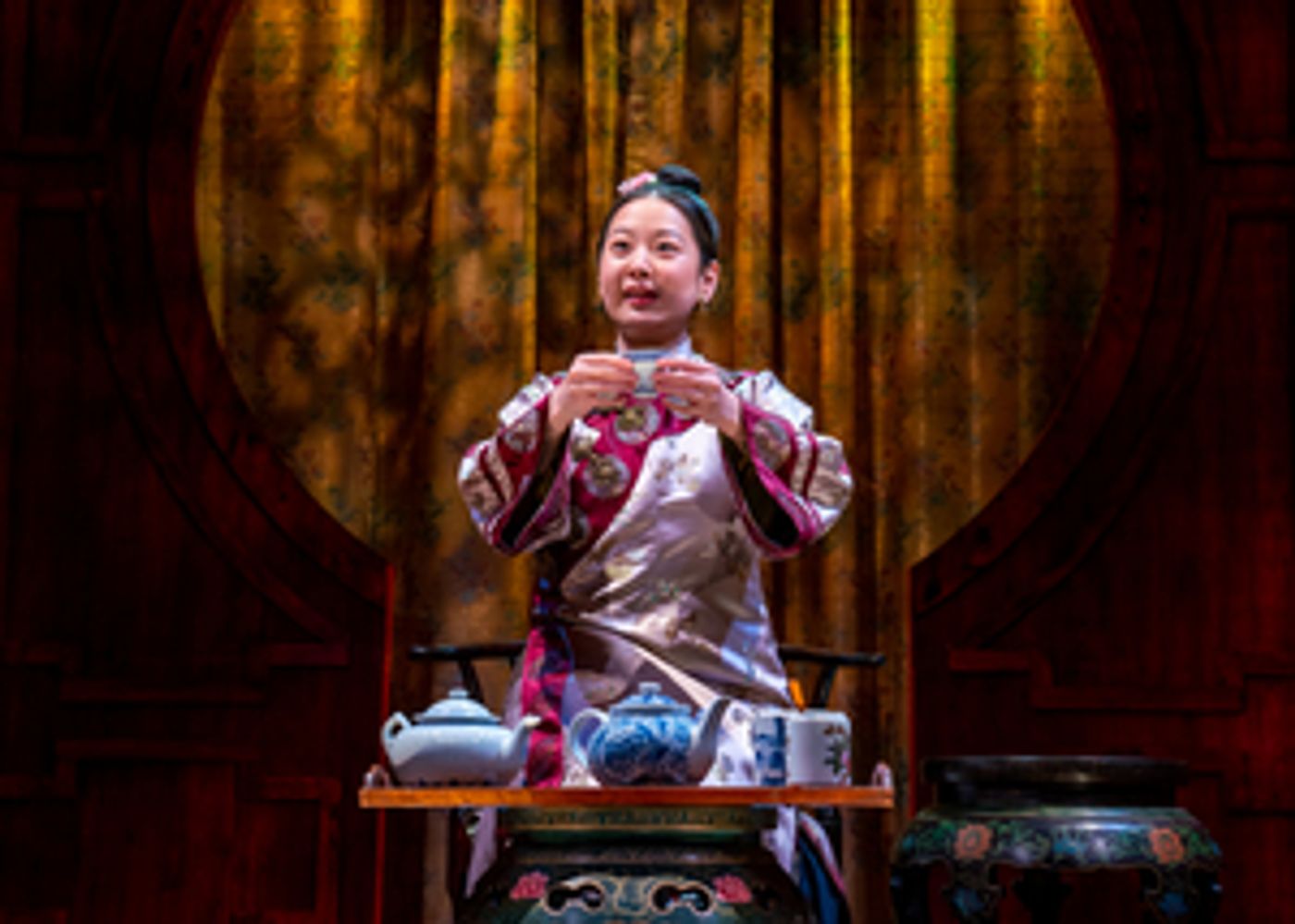Review: THE CHINESE LADY at TimeLine Theatre Company
The Chicago premiere of Lloyd Suh’s play runs through June 12, 2022 at Theater Wit.

Directed by Helen Young, TimeLine Theatre Company's Chicago premiere of Lloyd Suh's THE CHINESE LADY is a poignant and well-crafted play centered on Afong Moy, who was supposedly the first Chinese woman to come to America. Although historical record does not have much definitive information about Afong Moy (we even know that was not her real name), Suh uses the play's well-structured 90 minutes to imagine what she might have said to audiences had she been given the chance. For at least 15 years from 1834 to 1850, Afong Moy was treated like an exhibit in a museum; Nathaniel and Francis Carnes brought her to the United States to showcase her in front of American audiences. Thus, Afong Moy was taken away from her family and stripped of agency. While Suh's script cleverly allows Afong Moy to take back some of that agency, the play also demonstrates that in reality this young woman didn't have much of a voice or control over her situation at all.
Mi Kang beautifully portrays Afong Moy, bringing an immense depth of feeling to the character. She also has a heart wrenching rapport with Atung (Glenn Obrero), her translator. While Atung frequently states in the script that he isn't relevant, Afong Moy replies that without him, American audiences would have no idea what she's saying. In this way, Suh sets up a dichotomy between the two characters; while audiences can see Afong Moy, technically we cannot hear her. LIkewise, Atung translates for Afong Moy, but he's not meant to have an identity or opinions of his own. This layering allows Suh to reinforce questions of agency and identity within the play. Kang and Obrero play off each other beautifully; the connection between the characters feels honest and real. Obrero also makes the most of his lovely monologue.
Ultimately the play belongs to Afong Moy, in part to underscore that so much of her own life didn't belong to her. Each scene of the play presents a different moment in Afong Moy's life in the United States, from her arrival in 1834 at age 14 spanning all the way to the present (how exactly that unfolds I'll leave as a surprise). Kang brings a touching amount of lightheartedness and humor to the part, especially in the earlier scenes. She leans into the overtly presentational requirements of the role; after all, the entirety of the play takes place on Arnel Sancianco's set clearly meant to represent the museum exhibit in which Afong Moy was forced to display herself. Kang has a crisp and pleasant delivery during the educational moments in the play, in which she walks audiences through the various elements of her presentation as "The Chinese Lady." But as the play goes on, so too does Afong Moy's relationship with the audience evolve. Likewise, Kang's performance becomes more emotional and raw, and she seamlessly follows the emotional arc of the play. As we see Afong Moy over the years, it also allows Suh to explicitly reference numerous incidents of the exploitation of Chinese immigrants in the United States, as well as relay the horrors of the violence against them in the wake of the Gold Rush and the Opium Wars. By using Afong Moy to relay these historical events, however, Suh informs audiences but doesn't hit them over the head with the information.
It's also particularly smart that TimeLine has chosen to stage THE CHINESE LADY to coincide with AAPI month. The play probes poignant themes of Chinese American identity, and through the character of Afong Moy, the idea that sometimes the need to feel understood is just as important as providing understanding to others. While some of the scenes in the middle of the play feel like they could be shortened, the final scenes provide THE CHINESE LADY'S emotional heart and pack a punch. Likewise, Kang and Obrero give strong performances that underscore the power of the storytelling.
TimeLine Theatre Company's THE CHINESE LADY runs through June 12, 2022 at Theater Wit, 1229 West Belmont Avenue. Tickets are $42-$57. Visit timelinetheatre.com.
Photo Credit: Lara Goetsch
Review by Rachel Weinberg
Reader Reviews

Videos

